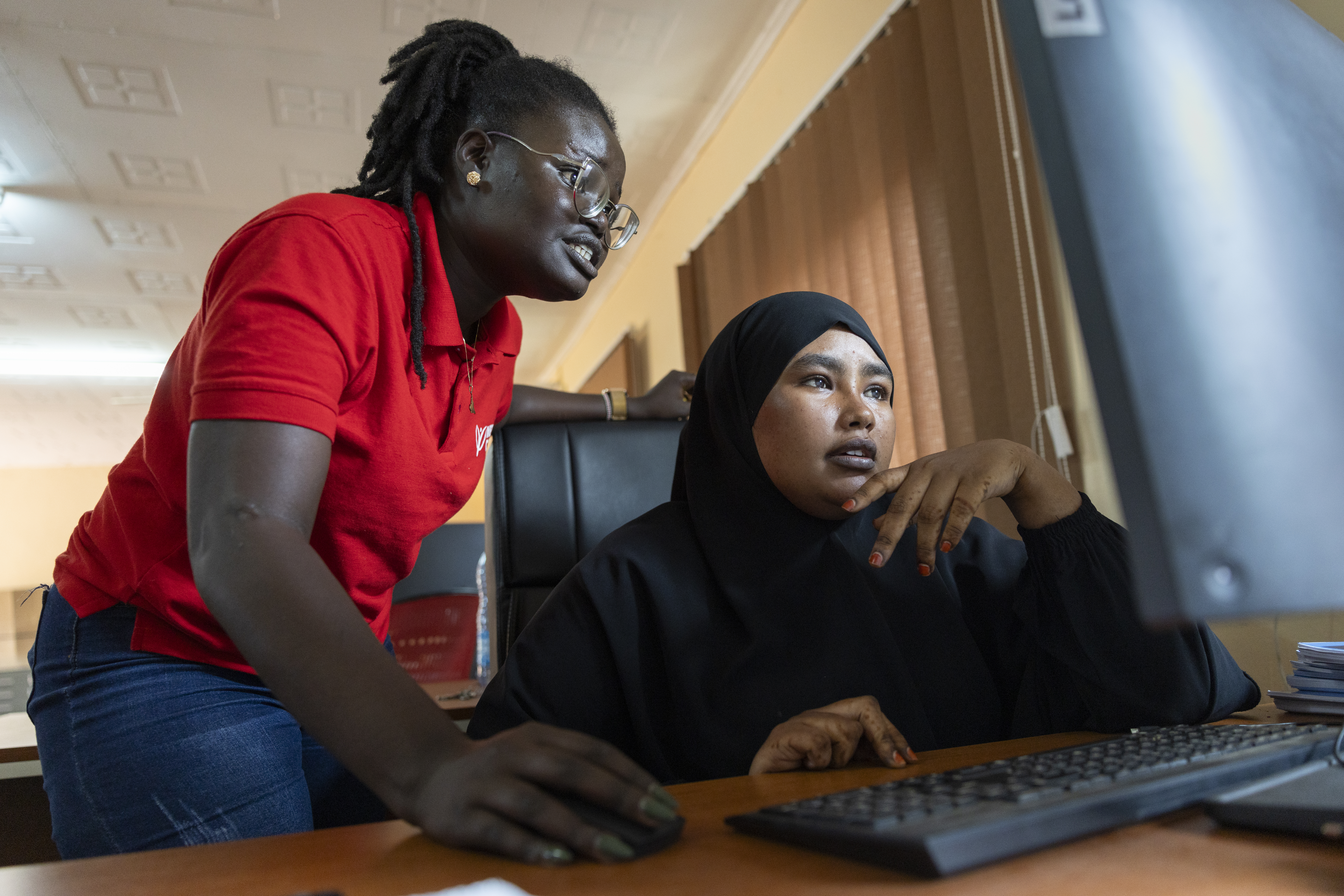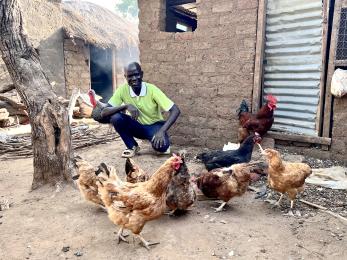For working mothers in Ethiopia, a better life starts with affordable daycare

Tirungo struggled to find work while caring for her young child.
In the same city, Emebet struggled to keep her affordable daycare afloat.
Both women knew there had to be a better way, but overcoming both economic and social challenges seemed overwhelming, if not impossible.
Challenges for working mothers in Addis Ababa
Addis Ababa, Ethiopia is one of the largest cities in Africa. Its population is growing quickly, exceeding more than 4.6 million people in 2019. Thousands of Ethiopians are flocking to the capital in search of a better life and, particularly, better jobs.
Despite the growth and wealth of Addis Ababa, there are a significant number of people being left behind, specifically mothers. Traditionally in Ethiopia, mothers are not meant to work — they're expected to stay home and raise their children. This discrimination stems from traditions that date back centuries, leading to many mothers who want to work being disadvantaged within the workforce of Addis Ababa.
Even once they find work, getting affordable and accessible childcare is yet another hurdle to overcome.
Emebet saw this struggle first-hand among mothers in her community.
“Daycare is very expensive. Poor people can’t afford daycare — most Ethiopians can’t afford daycare,” Emebet says.
A different type of daycare
Emebet is an Addis Ababa native and a mother who knows just how hard it can be to work and care for children. That’s why she left her job as a social worker and decided to start her own business, Sitota Daycare. 'Sitota' means 'gift' in Amharic.

Emebet started Sitota Daycare in 2018 after borrowing a loan from the government for more than 100,000 birr, equivalent to roughly £2,400 — a huge sum of money for the average Ethiopian. Emebet risked everything she had to start Sitota Daycare — the first affordable daycare service in her community. Despite meeting all the government requirements to open it, Emebet struggled to keep Sitota Daycare open.
Because she was providing affordable daycare to working mothers in her community, Emebet was not making a profit and failed to pay rent for one year. As the situation worsened, Emebet lost hope in ever achieving success.
Keeping the daycare dream alive
Emebet urgently needed help. The LI-WAY programme approached her just in time. (Mercy Corps is one of the implementing partners of the LI-WAY programme.)
LI-WAY was interested in learning more about Sitota Daycare because it was not only the sole daycare in the community, but also because it offered an affordable option. Emebet explained that there were hundreds of mothers struggling to find work because of this need.
“I didn’t want materials to make my daycare look nice. I don’t want to become rich,” Emebet declares. “I wanted subsidies to allow the working women in my community to bring their children here at a low cost.”
After completing an assessment and better understanding the need for affordable childcare services, the LI-WAY programme committed to supporting Emebet through subsidising childcare for mothers who need it most.
“As soon as the LI-WAY programme said they could provide subsidised payments, I called back the mothers that had initially come to my daycare but could not afford the monthly payment. I asked them if they were still interested. They all came running,” recalls Emebet.
With the support of the LI-WAY programme, Emebet has paid off her loan completely and now has seven full-time workers at Sitota Daycare — six nannies, one nurse and 35 children.
Starting over in Addis Ababa
Tirungo is one of those nannies. She’s been a part of the Sitota Daycare family for three months. She’s also able to keep her two-year-old daughter Dana at the daycare for a subsidised monthly payment of 200 birr per month, about £4.70 — a fraction of the cost that Emebet could previously offer without the support of the LI-WAY programme.
The job opportunity arrived when she needed it most.
Tirungo returned to Addis from Dubai, where she was abused and imprisoned while working as a domestic worker. When Tirungo finally moved back to Addis Ababa, now with a child, she was unemployed for a year, as she had no place to keep her daughter while working.
“I looked for work for one year but no one would hire me with my child on my back,” Tirungo recalls. “As I was crying because I couldn’t find work, a neighbour told me about Sitota Daycare. I came and Emebet let my daughter in despite the daycare being full. I found a job that same afternoon that my daughter started staying at the daycare.”

Tirungo now works as a part-time laundry woman in the morning and as a nanny at Sitota Daycare in the afternoon. With her income, Tirungo says she is able to pay for rent and save money for her daughter’s future.
“God willing, in the future, I hope to one day open a daycare like Sitota Daycare in other parts of the city,” says Tirungo. “Now I realise how important daycares are for working mothers in Ethiopia.”
Looking ahead
Despite the success of Sitota Daycare through the support of the LI-WAY programme, there are still difficulties ahead.
“Some challenges that we face at the daycare is the lack of nappies,” Emebet says. “Nappies are very expensive — about 800 birr per day [about £19].” That is more than what most of these mothers make in a month.
“This is too expensive for mothers. We are using traditional nappies right now, but are struggling to maintain this.”
But despite these challenges, Emebet is hopeful for the future of daycares in Ethiopia.
“I want this daycare to continue to spread,” Emebet says. “I want other mothers to open more daycares in the future.”


